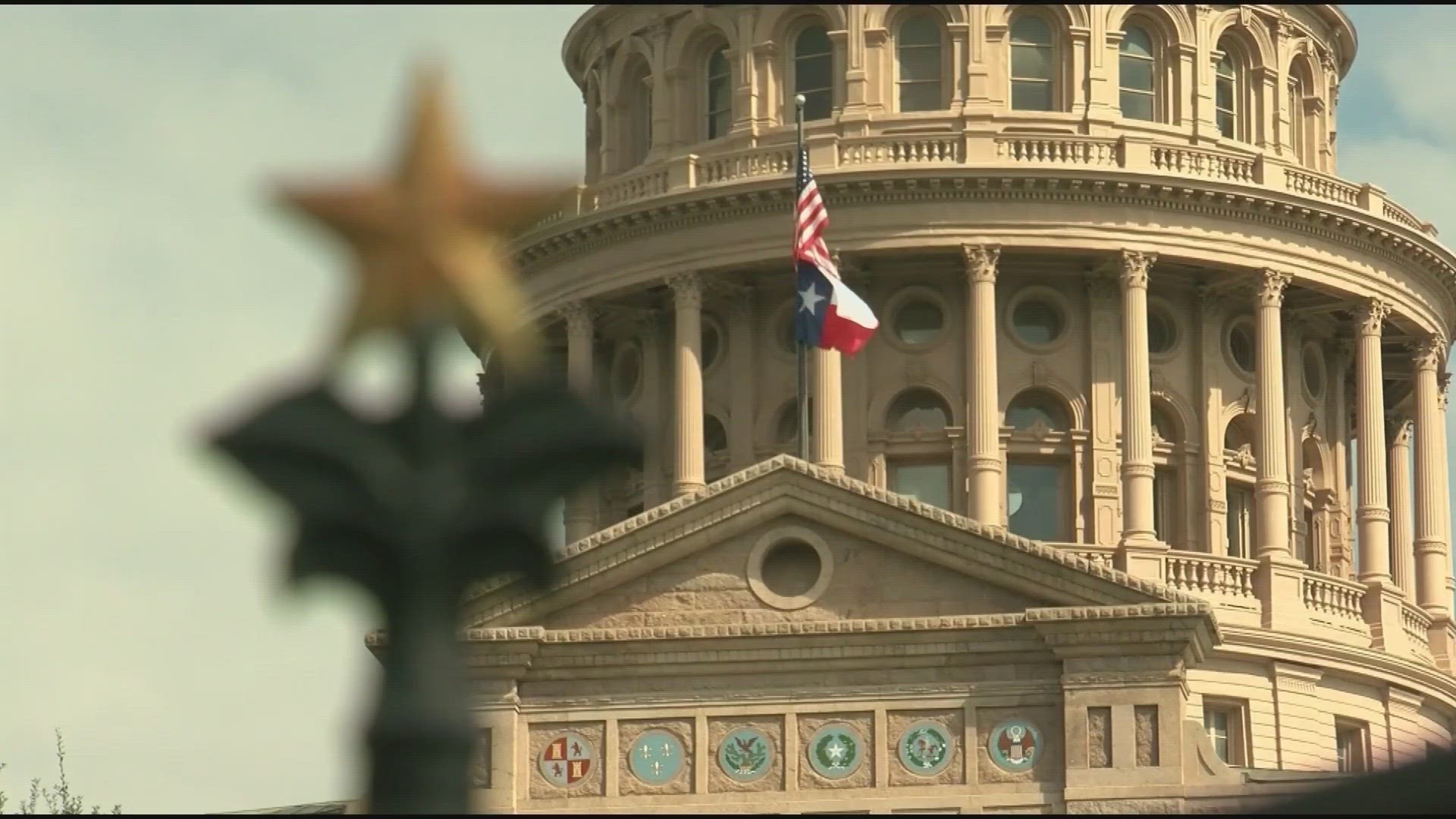SAN ANTONIO — Governor Greg Abbott, Lt. Governor Dan Patrick, and Texas senators won't let school vouchers go this session even if they have to bring it back from the dead.
The Texas House of Representatives has effectively said "no" to SB 8's education savings accounts, or school vouchers, twice now. An April budget amendment in the house stated no public funds could be used for vouchers.
Then, on Saturday, SB 8 officially died in the House Committee on Public Education when it failed to reach a deadline. The house version had already been scaled back from what Abbott wanted and it was now too late to send another senate bill to the house.
But on Monday, the Senate Committee on Education found a work-around. They simply added the school voucher plan to a bill that the House already passed, HB 100, even though it had nothing to do with vouchers.
"It's nothing that HB 100 was originally intended for so it is fascinating to see them do this," UTSA Political Science Chairman John Taylor said. "Senator Creighton and others in the Senate decided this was the last-gasp opportunity to add vouchers and to 'force their hand' in the state house."
Taylor said HB 100 deals with basic state funding allotment for K-12 education in Texas. The bill would reportedly infuse an extra $5 billion to school districts to increase school budgets and teacher raises. It would also increase and restructure the minimum salary schedule for specified employees according to the Texas Legislature Website.
Now, HB 100 would also establish a voucher program – or education savings account – that would provide parents with up to $8,000 each year per student to take to the district, or private school, of their choice.
Republicans and Democrats in the Texas House have already rejected vouchers multiple times out of concern that public schools will lose funding as a result of the program. Now, rejecting the new HB 100 would force them to reject pay increases at the same time.
"Some could make the argument that the voucher bill, or amendment, is in some respects holding the teacher pay hostage," Taylor said.
Multiple education groups spoke against the change to HB 100 on Monday before it eventually passed.
"We have been supportive of HB 100 this session with hopes that the funding would grow to meet the needs of students and teachers in our state, but this bill does not look like the bill that many of us had supported," said Texas School Coalition Executive Director Christy Rome. "The harm caused by the ESA (education savings account) language in this bill far outweighs and outlasts the section that will help public schools."
Chairman Brandon Creighton also faced push-back from other senators in the committee Monday.
"You would agree with me ESAs are a different subject all together than what came over in House Bill 100 correct?" Senator Royce West asked Creighton.
"Yes, as are the teacher rights provisions in the bill," Creighton said.
Royce then asked if there was a rule on whether they can add additional subject matter to a bill that was not in the "four corners" in the original bill.
"Well that's what we are doing here," Creighton said. "We can talk about how education is funded for the specific needs of the kids that need that education."
Taylor said adding the school voucher program to HB 100 would significantly change the bill's fiscal impact and there could be questions over whether the change violates the Texas Constitution.
"I've already seen stuff that suggests adding this massive amendment to HB 100 would cost about a half billion dollars and rise to 1.5 billion dollars in three years. That's a serious concern," Taylor said.
Taylor said the House of Representatives would still have a chance to vote on the changes to the bill and he expected to see some republicans joining democrats to oppose it. If the House did not agree with all the changes then the bill would need to go to a conference committee where both chambers would work out differences before sending the bill back to both houses for approval.
The Lt. Governor, who presides over the Senate, and the Speaker of the House both choose conference committee members, so there is a chance they could chose sympathetic lawmakers on both sides to come to an agreement. The bigger question is whether they would have time to do so.
"Really, Sunday, it's all over. Which is why the legislature will likely be in session Saturday and Sunday," Taylor said.
Governor Greg Abbott has already threatened to hold a special session if vouchers do not pass.

